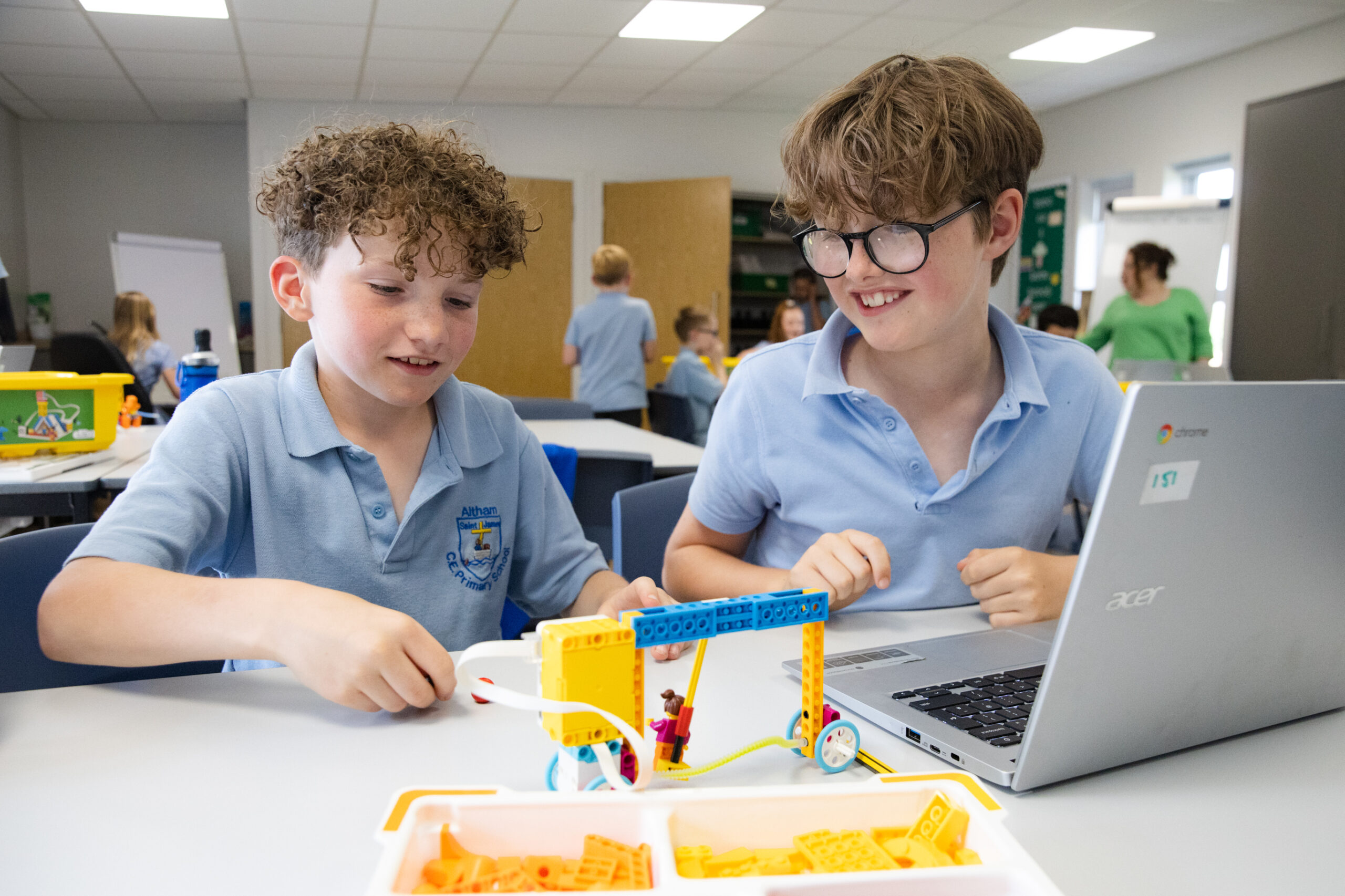Intent
All pupils at Altham St. James’ have the right to have rich, deep learning experiences that incorporate all aspects of computing. Technology is everywhere and will play a crucial part in all our pupils’ lives. We want to model and educate our pupils on how to use technology positively. We will try to embed computing across the whole curriculum to make learning creative and accessible. We want pupils to be fluent with a range of tools to best express their understanding and to be confident to choose the best tool to fulfil the task at hand.
Implementation
Children are taught a comprehensive progression of skills and knowledge that operates on a two-year rolling programme. Our Computing Curriculum has two elements. In Key stage 1 and 2 we teach discrete computing lessons, which give direct instruction on how to use hardware or software for a particular purpose. We also place an emphasis on teaching children how to use technology to enhance learning in other curriculum areas. For example, using the internet to research a topic or creating a power point to share their learning with others.
EYFS
We recognise the importance in the Foundation Stage of giving children a broad, play-based experience of computing in a range of contexts, including outdoor play. Computing is not just about computers. Early Years learning environments feature computing scenarios based on experience in the real world. In our reception class:
- We use cameras, iPads, video/video clips, apps, visualisers and the internet to make observations and find information about the immediate environment, different locations and places.
- We use simple equipment to make observations, (e.g. magnifiers, pipettes, egg timers, microscopes, etc.) and research is carried out using first hand experiences and secondary sources.
- Pupils express their feelings, ideas, thoughts and emotions in response to different media and make music using voice, objects, home-made and real musical instruments and a range of ICT.
- Pupils copy adults writing behaviour, (e.g. writing on the whiteboard, writing messages when on the phone, etc.).
Impact
At Altham St. James’ we want children to be creative and questioning. Learners should be able to discuss, reflect and appreciate the impact computing has had on their learning, their development and wellbeing. We strive to ensure that our pupils will realise the need for the right balance of using technology in a healthy lifestyle.
Resources
At Altham we regularly review the Computing resources we have available to enhance pupils’ knowledge and learning within Computing and ICT. We have a ‘wish list’ of resources we believe would further enhance learning and we plan to purchase these resources in the future. Currently we have and use: Chromebooks, laptops, Lego/Sprite Kits and BeeBots.
Online Safety statement
All members of the school community have a responsibility for promoting and supporting safe behaviours online. ICT and online resources are increasingly used across the curriculum. At Altham St. James’, we believe it is essential for e-safety guidance to be given to the pupils on a regular and meaningful basis. Pupils are taught about copyright and respecting other people’s information, images, etc. through discussion, modelling, and activities as part of the curriculum. Additionally, pupils are taught to critically evaluate materials and learn good searching skills. Staff must preview any recommended sites before use. Particular care must be taken when using search engines with the children as these can return undesirable links. We continually look for new opportunities to promote e-safety.Études offers comprehensive consulting, management, design, and research solutions. Every architectural endeavor is an opportunity to shape the future.


